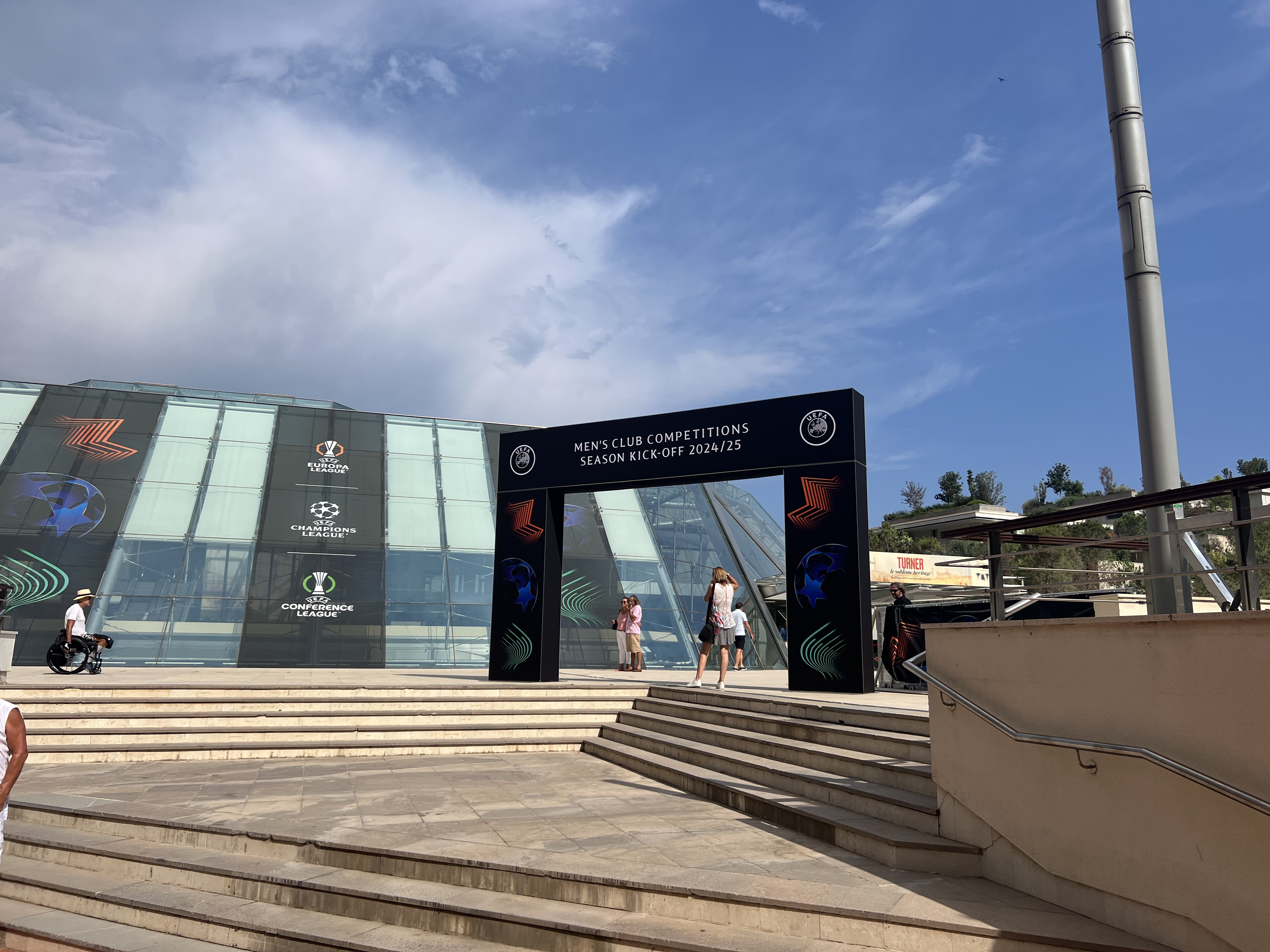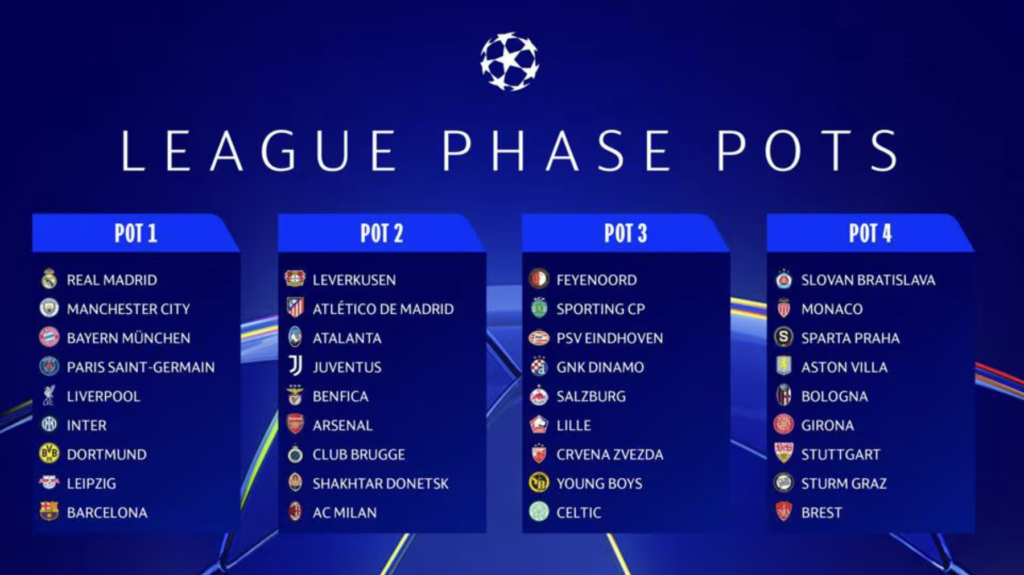August 29 – The final line up for the UEFA Champions League draw was confirmed last night with wins for Dinamo Zagreb, Crevena Zvezda, Slavia Prague and Slovan Bratislava. They fill the remaining spots in the all new 36-team draw to take place in Monaco tonight and the unveiling of a new era for international club football in Europe.
Whichever way you look at it, tonight’s gala ceremony marks a major change for the world’s leading club competition, both competitively and politically.
It is a bold re-invention of a competition that had not lost its lustre but needed to bring an edge back into the competition, particularly in its early stages.
The key selling points for the new League stage format are clear and intoxicating for even the most cynical of Champions League fans.
- More big clubs facing each other in meaningful contests from the start of the competition
- Eight different teams to be played (four home and four away) creating a much greater diversity of competition, styles of play and new clubs and players for clubs and fans to get to grip with
- And jeopardy at every stage – every point and every goal matters in the league stage which will determine seeding for the Round of 16
In an eve-of-draw briefing UEFA outlined the draw process that will see four pots of nine teams ranked by their club co-efficients.
All 36 teams will be manually drawn using physical balls. Once a team is drawn, automated software will randomly draw eight opponents – two from each of the four pots – also deciding which matches will be at home and which ones away.
Conditions built into the software mean that teams from the same country cannot play each other in the league stage, and that there are a maximum of two opponents from any other federation.
Not surprisingly teams from Europe’s Big 5 leagues fill Pot 1 (three from Germany, two each from England and Spain), while Pot 4 has five teams from the Big 5. In between is a fascinating balance of national champions from 14 different nations.
2024/25 Champions League: League phase draw pots
Pot 1
Real Madrid (ESP), Manchester City (ENG), Bayern München (GER), Paris Saint-Germain (FRA), Liverpool (ENG), Inter (ITA), Dortmund (GER), Leipzig (GER), Barcelona (ESP)
Pot 2
Leverkusen (GER), Atlético de Madrid (ESP), Atalanta (ITA), Juventus (ITA), Benfica (POR), Arsenal (ENG), Club Brugge (BEL), Shakhtar Donetsk (UKR), AC Milan (ITA)
Pot 3
Feyenoord (NED), Sporting CP (POR), PSV Eindhoven (NED), GNK Dinamo (CRO), Salzburg (AUT), Lille (FRA), Crvena Zvezda (SRB), Young Boys (SUI), Celtic (SCO)
Pot 4
Slovan Bratislava (SVK), Monaco (FRA), Sparta Praha (CZE), Aston Villa (ENG), Bologna (ITA), Girona (ESP), Stuttgart (GER), Sturm Graz (AUT), Brest (FRA)
The multiple permutations of the draw software have been trusted to sports data specialists AE Live who have developed a bespoke system for this draw, one that UEFA deputy general secretary Giorgio Marchetti (pictured centre) said can be trusted.
“Many people didn’t trust us in the past,” acknowledged Marchetti. “They thought the ball was hot or cold or God only knows which systems to manipulate the balls… People can trust us.”
The software was developed independent of UEFA who have had no access to the coding while EY has been tasked with auditing the software and the draw itself.
With such a reliance on digital technology the question was asked at the briefing whether it was safe from hackers.
“We have taken all steps we possibly can to make it as safe and secure as possible,” said David Gill of AE Live. “This is not new for us.”
“The response of the system will happen in a few seconds so there is no possibility for anyone to intervene,” Marchetti said.
Tonight’s draw is a major step into a more modern and equitable world for UEFA’s club competitions, and comes hard on the heels of a spectacular delivery of Euro 2024 in Germany.
Politically it comes at a key time as UEFA brushes off noisy challenges from a Spanish-club-led Super League (surely dead and buried now), and a European judiciary that couldn’t quite come down 100% on the side of the UEFA position as one and only true European competition organiser – the politicians were with the programme, the legal folk not quite.
At the same time there is FIFA’s expanded 32-team Club World Cup, its much-wanted competition driven by FIFA’s president Gianni Infantino, but not really attracting that much interest form Europe’s giant clubs and which is proving slow out the starting blocks for a 2025 kick-off in the US both commercially and organisationally.
Tonight UEFA comes charging out of the starting blocks in Monaco.
Contact the writer of this story at moc.l1745210051labto1745210051ofdlr1745210051owedi1745210051sni@n1745210051osloh1745210051cin.l1745210051uap1745210051



